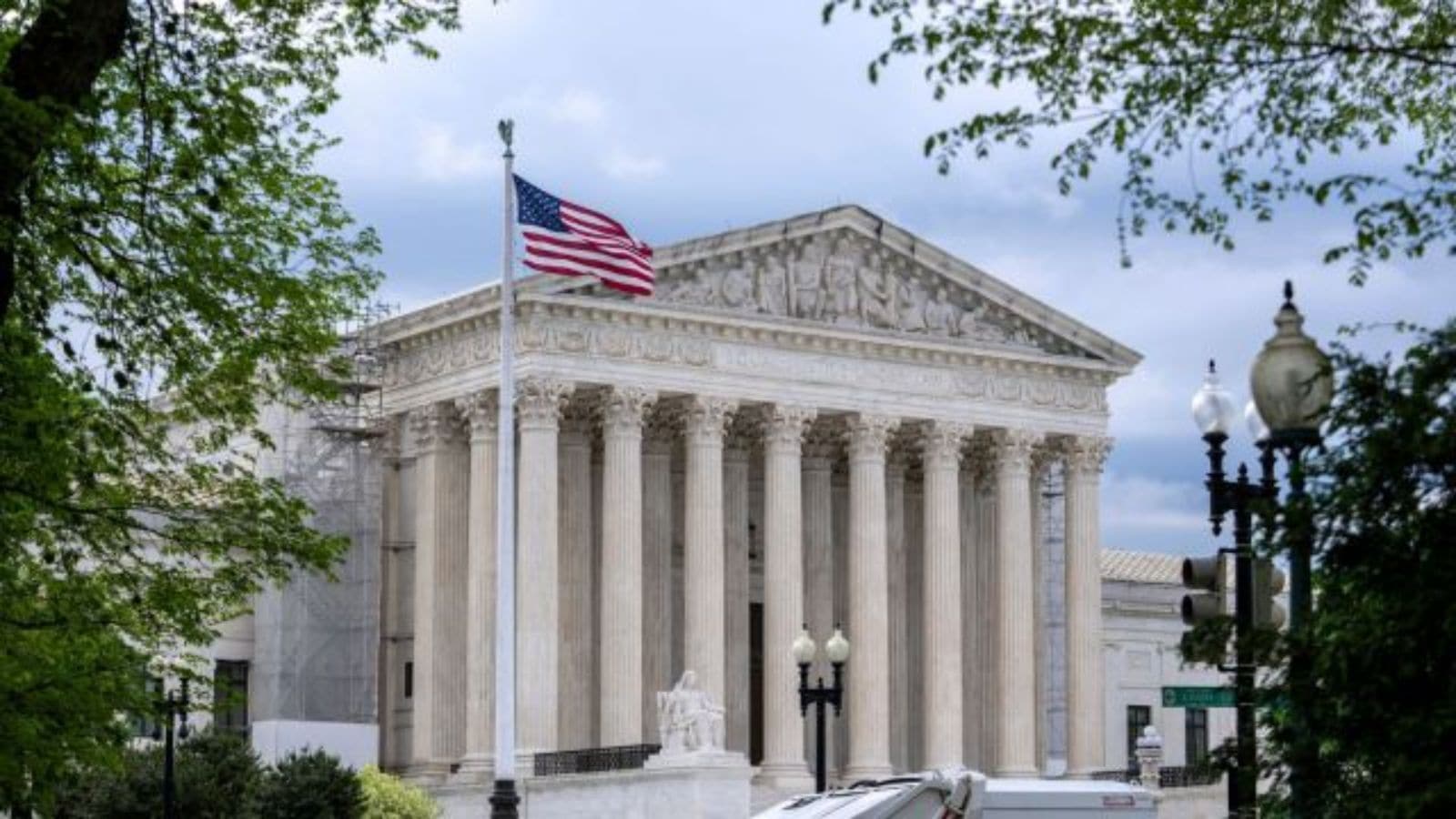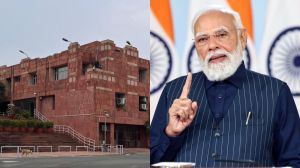Stay updated with the latest - Click here to follow us on Instagram
US Supreme Court limits nationwide injunctions on Trump’s birthright citizenship orders: What we know so far
The justices instead imposed a 30-day delay, giving lower courts time to adjust their existing orders or take further legal action
 US Supreme Court on Friday gave President Donald Trump a partial legal win in his attempt to end birthright citizenship. (File Photo)
US Supreme Court on Friday gave President Donald Trump a partial legal win in his attempt to end birthright citizenship. (File Photo)The US Supreme Court on Friday gave President Donald Trump a partial legal win in his attempt to end birthright citizenship, limiting the power of federal judges to block presidential orders across the country. However, the court did not rule on the constitutionality of Trump’s policy itself and has paused its enforcement for 30 days.
Here’s what we know so far:
Ruling limits nationwide injunctions
In a divided judgment, the court said individual federal judges no longer have the authority to issue nationwide injunctions in orders that block executive actions from taking effect throughout the United States. This move is seen as a significant shift in the balance of power between the judiciary and the executive.
The decision marks a procedural win for Trump, who has long criticised lower courts for halting his policies through broad rulings.
According to the Associated Press, the justices found that such injunctions are beyond the legal powers of district court judges, unless they apply only to the parties involved in a specific case.
Birthright Citizenship order still on hold
Despite this ruling, the court did not allow Trump’s executive order, which aims to deny US citizenship to children born in the country to undocumented parents to take effect immediately.
The justices instead imposed a 30-day delay, giving lower courts time to adjust their existing orders or take further legal action, as reported by The New York Times.
That means Trump’s order remains blocked for now, although the path is clearer for it to be implemented if courts do not intervene again.
What the case was about
On his first day back in office, President Trump signed an executive order seeking to end automatic citizenship for nearly all children born in the United States to undocumented immigrants.
The 14th Amendment to the US Constitution grants citizenship to “all persons born or naturalised in the United States, and subject to the jurisdiction thereof.” Trump’s legal team argues that the phrase “subject to the jurisdiction thereof” excludes the children of non-citizens in the country illegally.
This interpretation has been widely rejected by lower courts and legal scholars.
No decision on constitutionality, yet
The Supreme Court deliberately avoided ruling on whether Trump’s order is constitutional. Instead, the justices focused on judicial power, not immigration law.
In doing so, the court left the door open for future legal challenges over the meaning of the 14th Amendment’s citizenship clause.
Justice Ketanji Brown Jackson and others expressed concern during hearings that allowing the executive order to take effect without broader review could create confusion and unequal treatment across states.
What happens next
For now, the executive order is not in force, and the administration cannot implement the changes to citizenship rules. But that could change quickly if lower courts revise or lift their current injunctions following the Supreme Court’s new guidelines.
The Trump administration is expected to issue formal guidance on how it would apply the new rules once the 30-day pause ends.
Further court battles are likely, especially over the substance of the birthright citizenship policy. The Supreme Court could still be asked to weigh in directly on the constitutional question in a future case.
(With inputs from agencies)
- 01
- 02
- 03
- 04
- 05































